The Michener Institute of Education at UHN
Take our virtual


Take our virtual



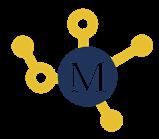

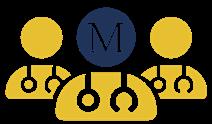
Michener is the only postsecondary institution in Canada focused exclusively on the health professions. Some of our programs are the only ones of their kind in Canada.
As part of University Health Network (UHN), one of the largest and most highly ranked hospital systems in Canada and internationally, Michener’s curriculum is informed by cutting-edge research and clinical innovations, giving our graduates an advantage as they begin their careers.

Michener’s programs are hands-on and practical, using simulation and clinical experience to train health care professionals who are job-ready on Day One of their careers.
Michener delivers a superior quality of education with small class sizes, faculty who are experienced health care professionals, sophisticated simulation labs and diagnostic technology, deep expertise in curriculum design and flexible learning formats.
Michener attracts students who care deeply about helping others, in roles that are critical to the accurate diagnosis and compassionate treatment of disease. Our graduates are among the most caring, skilled leaders in their fields of practice.
Apply online via OCAS at ontariocolleges.ca. For graduate programs, apply via Michener Self-Service. Visit the Admissions page on michener.ca to access Self Service. For joint programs with University of Toronto, apply online via OUAC at ouac.on.ca. The application deadline for all programs is February 1, 2023. Follow these simple steps to apply to our full-time programs:
Choose a Michener program
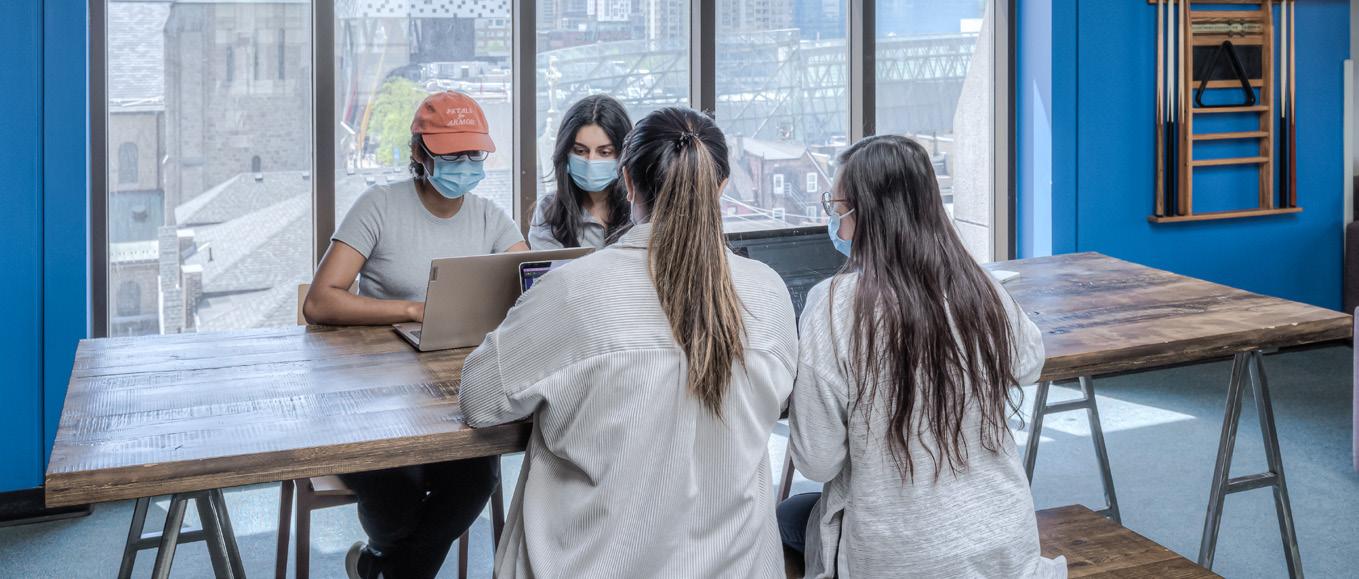
online via OCAS, OUAC or Michener Self-Service
for Mandatory Admissions
(CASPer)
via OCAS, OUAC or Michener
required
OCAS, OUAC or Michener
enrolled in full-time Michener
be eligible, if qualified, for
under the Ontario Student Assistance
for students to remotely access and use
productivity software. See the Admissions page
these technology
International Applicant: An applicant born outside of Canada who still resides and works abroad, looking to apply to a program at Michener.
Internationally Educated Applicant: An applicant born outside of Canada with status as a permanent resident, landed immigrant or refugee and with previous education from a non-Canadian institution.
Internationally educated applicants must meet Michener’s published admission requirements and prerequisites. These individuals will need their international documents evaluated by World Evaluation Services (WES) or International Credential Assessment Service of Canada (ICAS) in order to determine admission to Michener’s programs.
Original or notarized copies are required for all documents. Photocopies or email attachments are not considered official documents and will not be accepted.
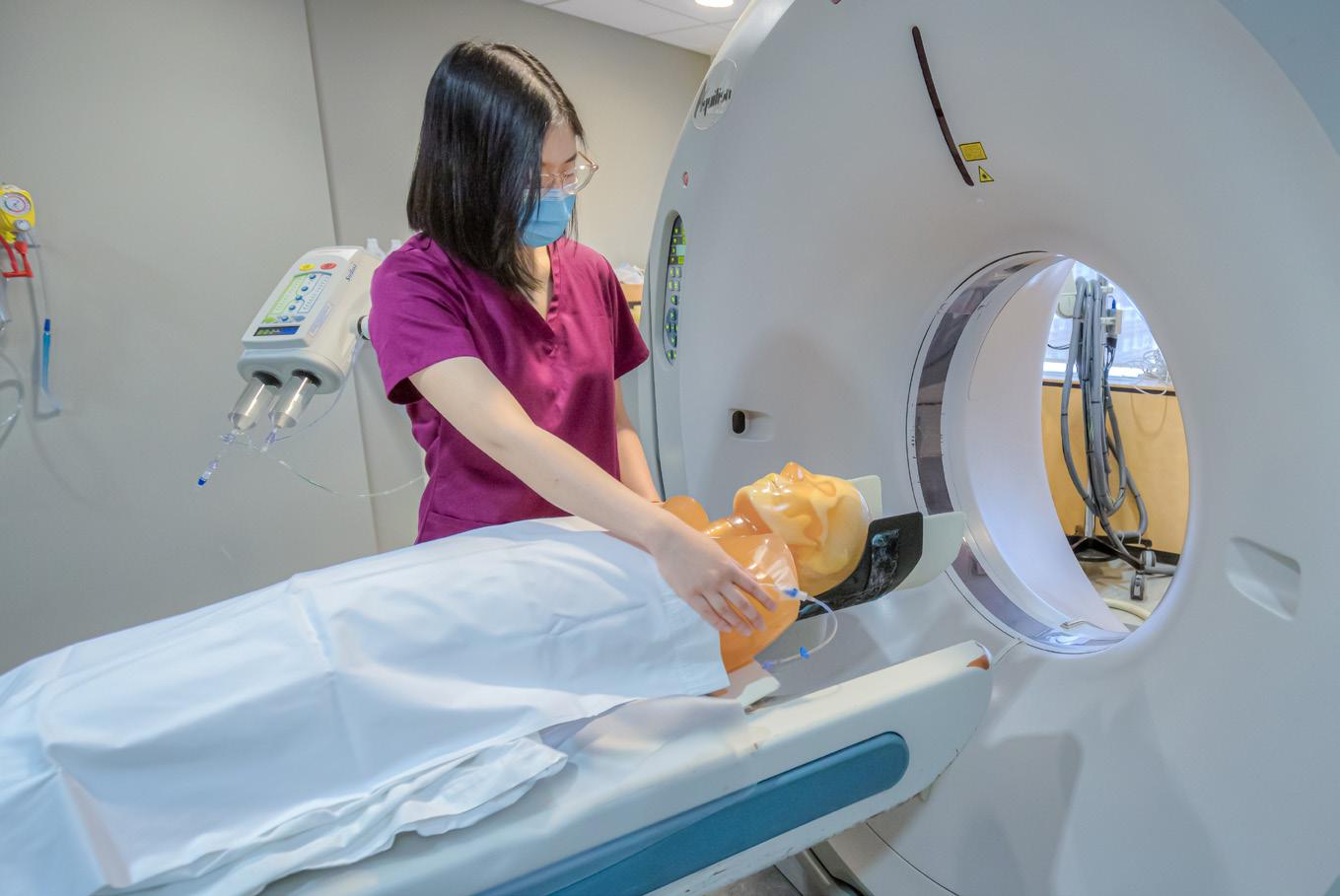
Applicants whose first language is not English will be required to complete an English Assessment demonstrating English skills at the postsecondary level.
An English Language Assessment is not required for applicants from countries that are English-language dominant (listed on Michener’s website). Applicants who have completed two or more consecutive years of full-time post-secondary study at a Canadian university or college will not be required to provide proof of English language proficiency. Canadian licensed or registered health care professionals are exempt.

English Language Assessment Type of Evaluation/Test Scores Required Contact
Michener English Language Assessment (MELA)
Test of English as a Foreign Language (TOEFL)
Pearson Test of English (PTE)
International English Language Testing System (IELTS)
8.0 in each band 416-596-3117 themela.com
Minimum 100 (iBT), with 22 in writing section ∞ Computer based: 250, Paperbased: 600 and test of written English (TWE) of 5.0
Academic test 65 overall with communicative skills (reading, listening, writing, speaking) over 60
1-877-863-3546 ets.org/toefl
pearsonpte.com
Academic test: 6.5 overall and 6.0 in every band ielts.org
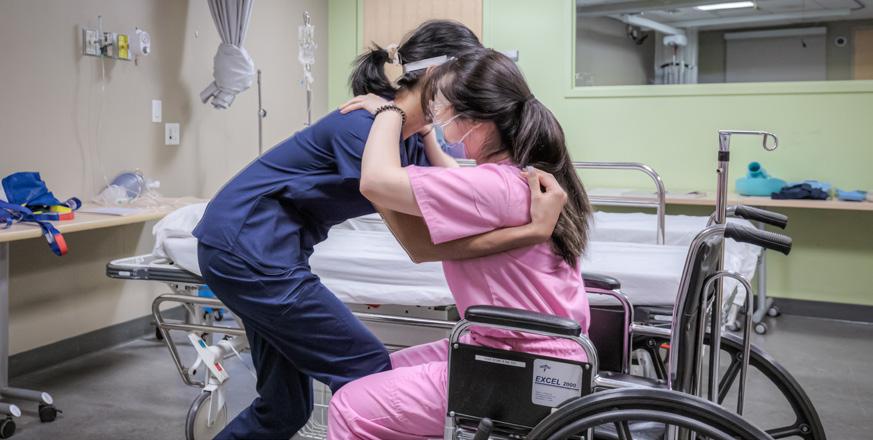
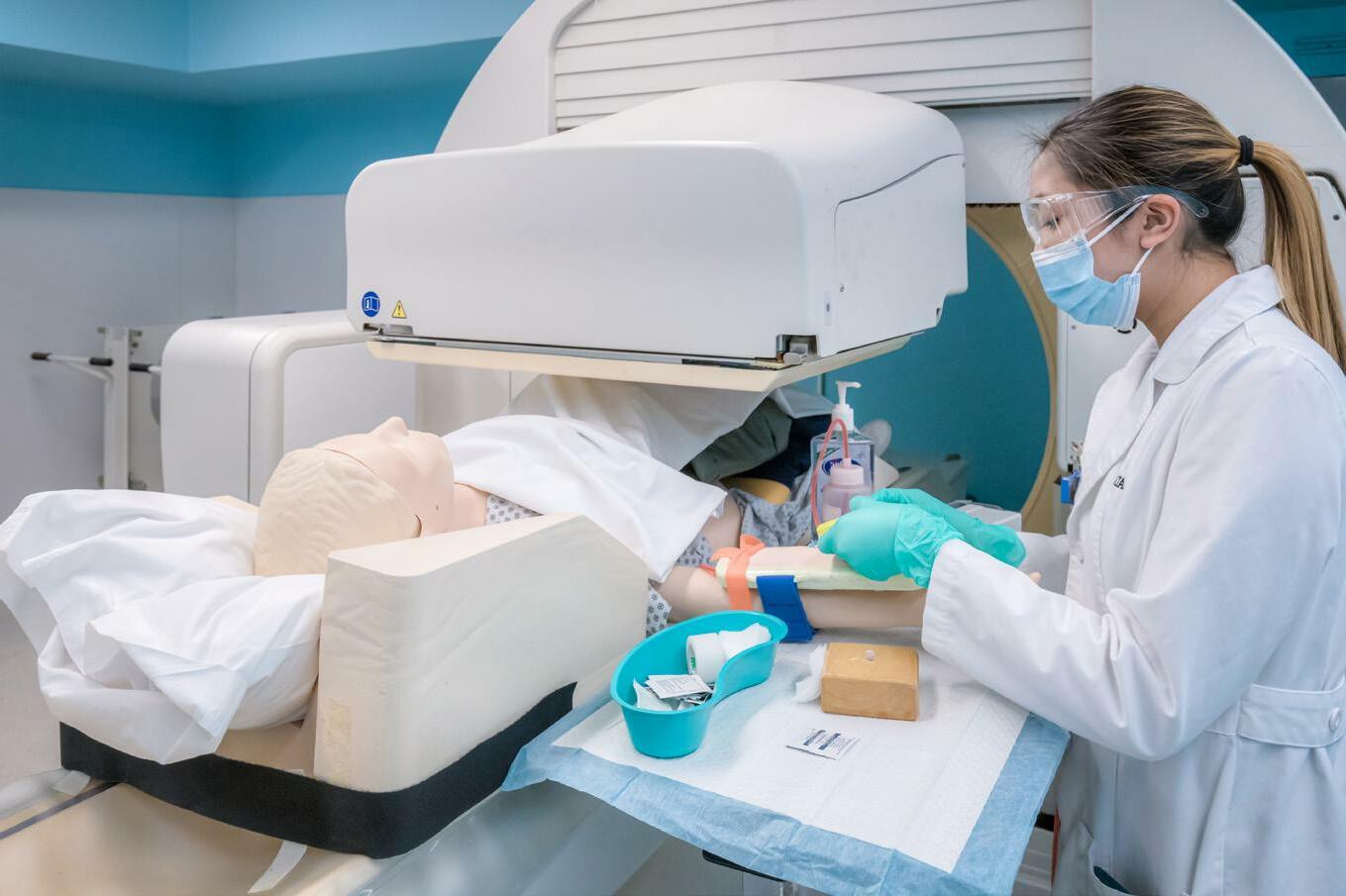
Clinical Education is a fundamental component of all Michener full-time and part-time programs. Our partners include teaching and community hospitals, private laboratories, clinics and community health centres across Canada. Michener students can apply their knowledge and skills in handson work environments. Students practice under the supervision of clinical coordinators and educators using the latest diagnostic and patient-care equipment and technology.
The dedicated staff in the Office of Clinical Education work with students to place them at one or more of our partner sites located across Canada. Clinical partner sites are subject to change; therefore, specific regions and sites may not be available at the time of placement.

Michener’s Student Success Network is available to help all full-time and part-time students navigate their experience at Michener and offers a range of services to support students inside and outside of the classroom, as well as virtually. Visit michener.ca/studentsuccess for more information on Michener’s support services.
Michener strives to ensure the success of students with a documented accessibility or accommodation need and will work with the Student Success Network and Michener Health Services team and medical practitioners to meet accommodation needs, including in-class, lab and exam accommodations.

Michener has a 24-hour workout and cardio facility that is available for all full-time and part-time students to maintain a healthy, active lifestyle. The gymnasium is available for intramurals and pick-up sports.


Peer Tutoring is available to current full-time and part-time students who may need extra support. Students can self-refer or may be recommended by faculty throughout the academic year.

Michener’s Coaching and Counselling services offer free confidential and professional supports for a variety of life’s stresses, ranging from anxiety and depression, homesickness, grief, sexual identity issues and addiction. Academic coaching is available through career workshops and other resources to improve study and exam strategies, communication and stress management skills. Coaching and counselling sessions can be in-person, on the phone or over secure video chat.
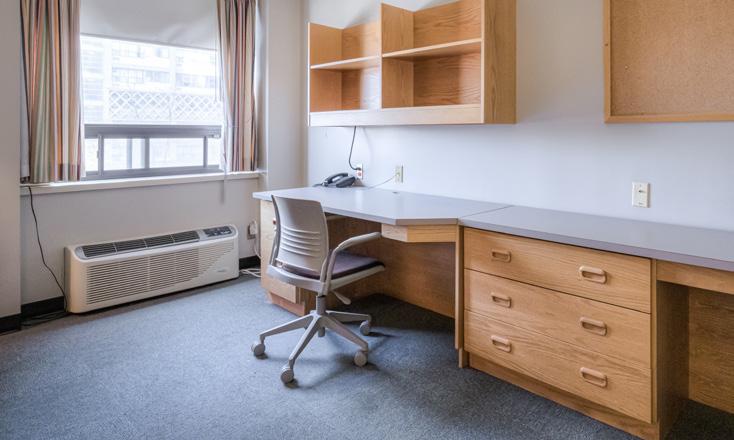
Interested in living in the heart of downtown Toronto? Residence life at Michener is safe and convenient. Our Schatz Hall residence is co-ed and offers single rooms with a private washroom. The residence has 24-hour security and is located directly on campus. Priority is given to students in year 1 of a Michener program.

Credential Earned Advanced Diploma Program Length 3 years (full-time)
Program Delivery On site with online components
Start Date September 2023
Application Deadline February 1, 2023
Secondary school diploma with a minimum cGPA of 75% and a minimum grade of 70% in each of the following pre-requisite courses:
• English – ENG4U
• Mathematics – Any grade 12 4U level course
• Chemistry – SCH4U
• Biology or Physics – SBI4U or SPH4U
• Two (2) additional grade 12 4U/M level courses
Applicants with post-secondary education (university and/or college) must have a minimum cGPA of 2.70 on the OMSAS* scale.
University-level courses may be used to satisfy subject prerequisites. Applicants with postsecondary education must provide official transcripts for all secondary and post-secondary institutions attended. The academic minimums on the post-secondary record are a 65% in each subject prerequisite and a cGPA of 70% (B-).
All applicants are required to complete the CASPer assessment. (Found on Admission Requirements for Full-Time Programs page on michener.ca)
*Visit ouac.ca for Ontario Medical schools grade conversion.
The Medical Laboratory Science program is composed of three parts:
• Four didactic semesters, which include theory and practical laboratory sessions (Years 1 and 2)
• One 12-week simulated clinical semester on campus in which the students practice as Medical Laboratory Technologists (MLTs) in a simulated clinical environment
• One 20-week semester of clinical education at affiliated sites
From day one, students are immersed in a collaborative, hands-on environment simulating a clinical lab setting. Michener’s affiliation with UHN has helped to further its goal of providing students with the most cutting-edge medical equipment and access to clinical expertise. Michener’s laboratories are equipped with up-to-date equipment, including a variety of automated lab analyzers, high quality microscopes, double and five-headed microscopes and digital technology to augment student learning. The labs are equipped with multiple analyzers allowing students the opportunity to practice in both small groups and independently.
Graduates are eligible to write the national certification examination conducted by the Canadian Society for Medical Laboratory Science (CSMLS).
The Medical Laboratory Science Program is accredited by Accreditation Canada. Accreditation is a quality improvement process that ensures educational programs meet national standards and that students acquire the knowledge, skills and competencies for safe and effective care at entry to practice.
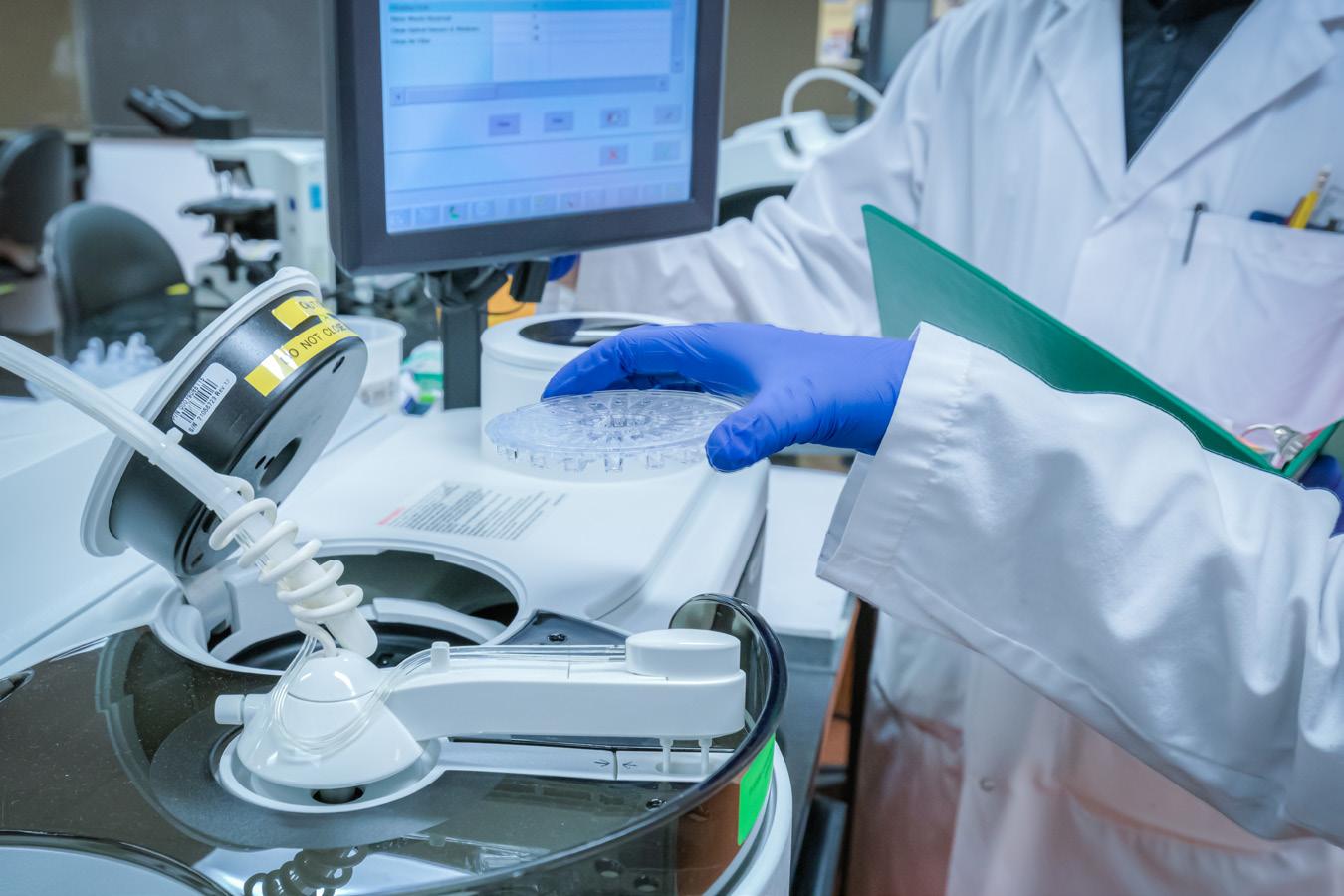
Clinical Chemistry
Transfusion Science
Microbiology
Hematology
MLTs make up one of the largest groups of regulated health care professionals in Canada. They practice in hospitals, private or public health laboratories, plus research and educational institutions. On the job, MLTs work independently, with minimal supervision and have control over their daily routine. Despite the independent nature of the profession, collaboration and communication with fellow health care professionals is a skill that is emphasized in the Michener program, as is the ability to discuss sensitive test results in a professional and responsible manner.
Hospital or private laboratories
Canadian Blood Services
Consulting, Sales and Marketing,
Public Health/Infection
Assurance/Total Quality
Research and Product Development,
“The Med Lab program not only makes us competent MLTs, but it also makes us confident in our ability to work in labs.”
Nicole L. Medical Laboratory Science Student
Secondary school diploma with a minimum cumulative grade point average (cGPA) of 75% and a minimum grade of 70% in each of the following pre-requisite courses:
• English – ENG4U
• Mathematics – Any grade 12 4U level course
• Chemistry – SCH4U
• Biology – SBI4U
• Physics (Grade 11 or 12) – SPH3U or SPH4U
• One (1) additional grade 12 4U/M level course
Applicants with post-secondary education (university and/or college) must have a minimum cGPA of 2.70 (70%) on the OMSAS* scale.
University-level courses may be used to satisfy subject prerequisites. Applicants with postsecondary education must provide official transcripts for all secondary and post-secondary institutions attended. The academic minimums on the post-secondary record are a 65% in each subject prerequisite and a cGPA of 70% (B-).
*Visit ouac.ca for Ontario Medical schools grade conversion.
Respiratory Therapists provide care to patients whose ability to breathe has been compromised.
During the first two years of the Respiratory Therapy program, Michener students have full access to practice labs equipped with the most current and advanced respiratory therapy equipment, ensuring the lab and simulation activities mirror clinical realities. Michener’s intensive program covers all facets of entry-to-practice requirements ensuring graduates are job-ready.
The Respiratory Therapy program is accredited by Accreditation Canada. Accreditation is a quality improvement process that ensures educational programs meet national standards and that students acquire the knowledge, skills, and competencies for safe and effective care at entry to practice.

• Using medications, therapies and assessments to assist in the prevention, diagnosis and treatment of heart and lung disease
• Using mechanical ventilators and other life support equipment to sustain life
• Working as an integral part of the inter-professional health care team
Whether the goal is to work in a critical care environment or a community setting such as rehabilitation and homecare, Michener’s commitment to students is to instill the most current theory and the ability to execute those theories in a professional and accountable manner. Respiratory Therapists provide care to adults, children and newborns. In most cases, Respiratory Therapists work shifts that may be 10-12 hours long, and are a combination of days and nights and include weekends.
Respiratory Therapy is a regulated health profession. To work as a Respiratory Therapist in Ontario, graduates must be registered with the College of Respiratory Therapists of Ontario (CRTO). Graduates are eligible to write the national examinations. With success on the national examinations, a Respiratory Therapist is eligible to work across Canada.
Possible work sites include:
• Critical care units, emergency departments, operating rooms, diagnostic testing laboratories, rehabilitation programs and asthma clinics
• Homecare companies (working in a clinic or visiting patients in their homes)
• Diagnostic testing laboratories, including pulmonary function testing laboratories and sleep laboratories
• Private sector (pharmaceutical or medical equipment sales)
“My time at Michener has been nothing but warm and welcoming! The program’s integration with all fields of health care and its relevance to current global health issues has made me love it even more.”
Isveni S.
Respiratory Therapy Student
Credential Earned
Length
Program Delivery
Diploma
years
site and online
2023
Bachelor of Science degree in a health sciences field or a Bachelor of Science/Arts degree in Kinesiology from a recognized university with a minimum cGPA of 2.70 (B- or 70%) on the OMSAS* scale and a minimum grade of 70% (B-) in each of the following universitylevel courses:
• Human Anatomy (1 semester-length course - 0.5 credit)
• Human Physiology (2 semester-length courses - 1.0 credit)
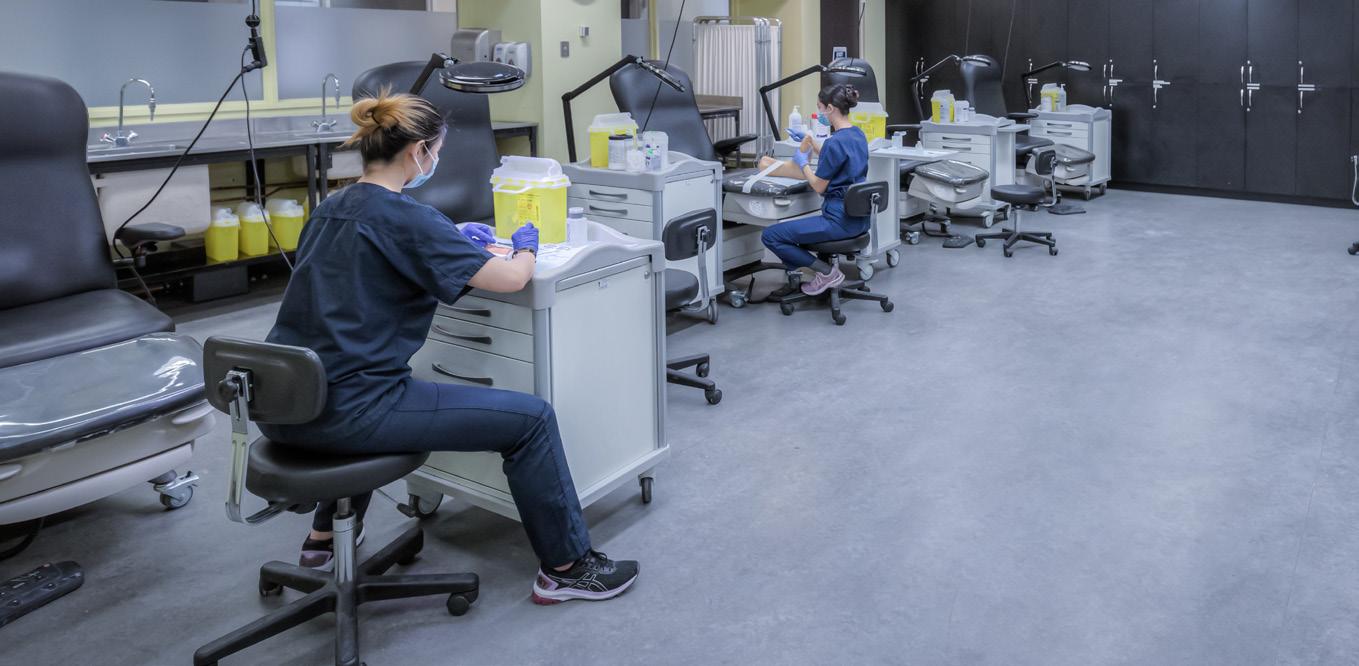
• A high command of both written and verbal English language skills is essential
• Advanced computer literacy skills
All applicants are required to complete the CASPer assessment. (Found on Admission Requirements for Full-Time Programs page on michener.ca)
Michener offers the only English Chiropody program in Canada. Michener has an on-site Chiropody clinic, which provides students with the opportunity to treat patients under the supervision of faculty who are licensed Chiropodists.
To practice as a licensed Chiropodist in Ontario, individuals must be registered with the College of Chiropodists of Ontario. Graduates from this program are eligible to write the College’s annual provincial registration exam.
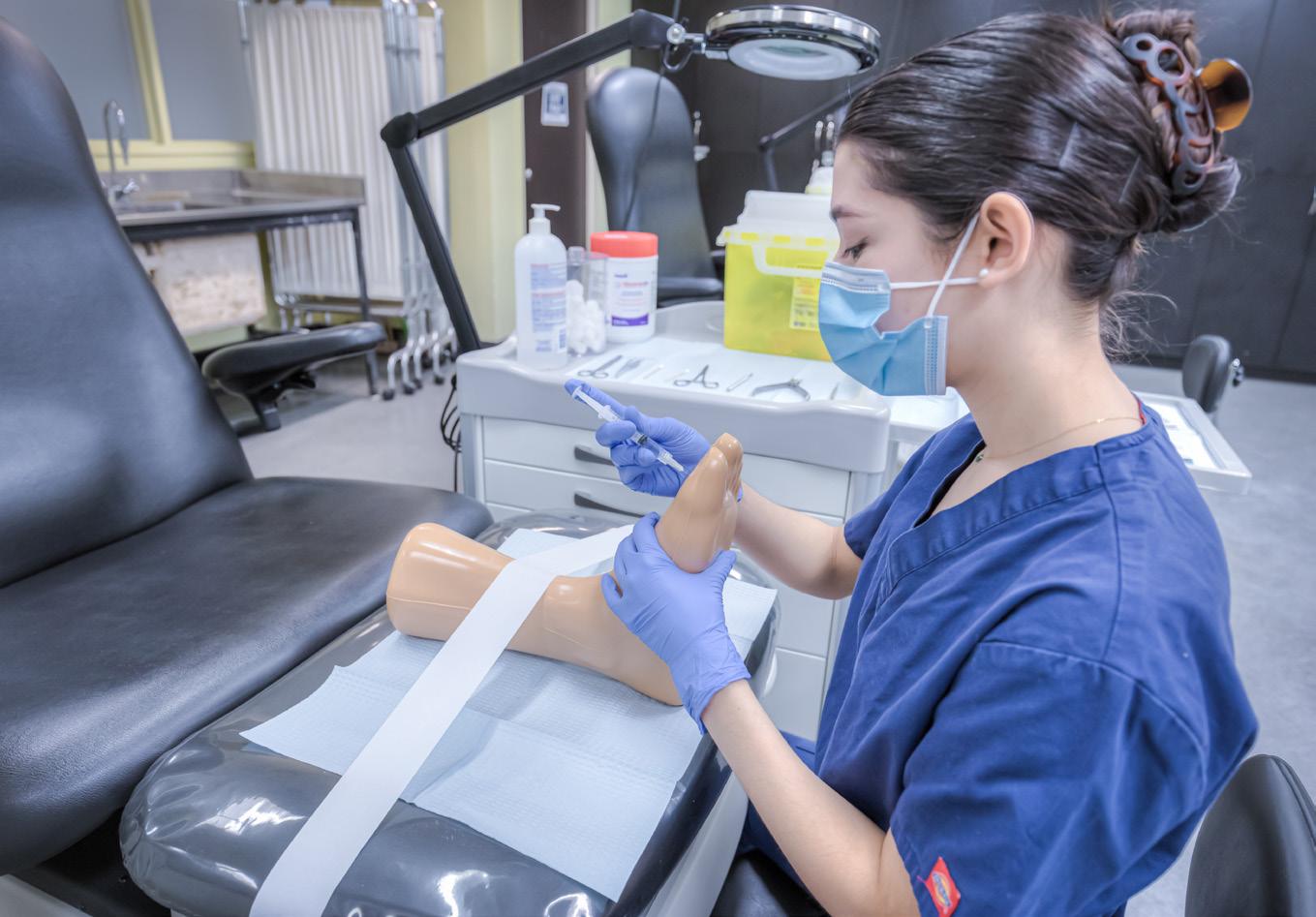
• Anatomy of the musculoskeletal system of the lower limb, including dissection in a cadaver lab
• Pathophysiology of systemic diseases with lower limb complications
• Theoretical and clinical pharmacology
• Biomechanics of the lower limb and gait cycle
• Management of biochemical conditions, including orthotic therapy
• Podiatric soft tissue surgery, including nail procedures and suturing
• Podiatric anesthesia and injection techniques
A Chiropodist is a primary care professional who specializes in the assessment, management and prevention of dysfunctions, disorders and diseases of the foot. Chiropodists are an integral part of the multidisciplinary health care team, who are skilled in the management of acute and chronic conditions affecting the foot. These conditions can include routine diabetic foot care, sports and traumatic injuries, biomechanical assessments and orthotic therapy, pediatric foot conditions and wound care. A referral is not required to consult a Chiropodist, however Chiropodists often work closely with other medical professionals as part of the health care team.
Chiropodists work in a wide range of settings, including community health centres, family health teams, long term care facilities, public hospitals, sports teams and private practice.
Shirley B. Chiropody Student“Throughout COVID-19, the Chiropody program offered flexible modes of delivery for its course content to maintain a comprehensive and engaging learning environment.”
years (full-time)
site with online components
2023
1, 2023
A) Bachelor of Science with a minimum cGPA of 2.70 on the OMSAS* scale and a minimum grade of 70% in each of the following university-level courses:
• Human Anatomy (2 semester-length courses - 1.0 credit)‡
• Human Physiology (2 semester-length courses - 1.0 credit)‡
Michener continuing education course AP601 fulfills this requirement OR
B) Canadian Certified Medical Laboratory Technologist (MLT) with a degree or diploma and a minimum cGPA of 2.70 on the OMSAS* scale.
All applicants are required to submit an Applicant Experience Checklist. CASPer assessment is mandatory. (found on Admission Requirements for Full Time Programs page on michener.ca)
*Visit ouac.ca for Ontario Medical schools grade conversion.
Michener offers the only Diagnostic Cytology program in Canada. Graduates are eligible to write the national certification examination conducted by the Canadian Society for Medical Laboratory Science (CSMLS).
The Diagnostic Cytology program is accredited by Accreditation Canada. Accreditation is a quality improvement process that ensures educational programs meet national standards and that students acquire the knowledge, skills and competencies for safe and effective care at entry to practice.
• Detecting and diagnosing precancerous cellular changes using high-powered light microscopes
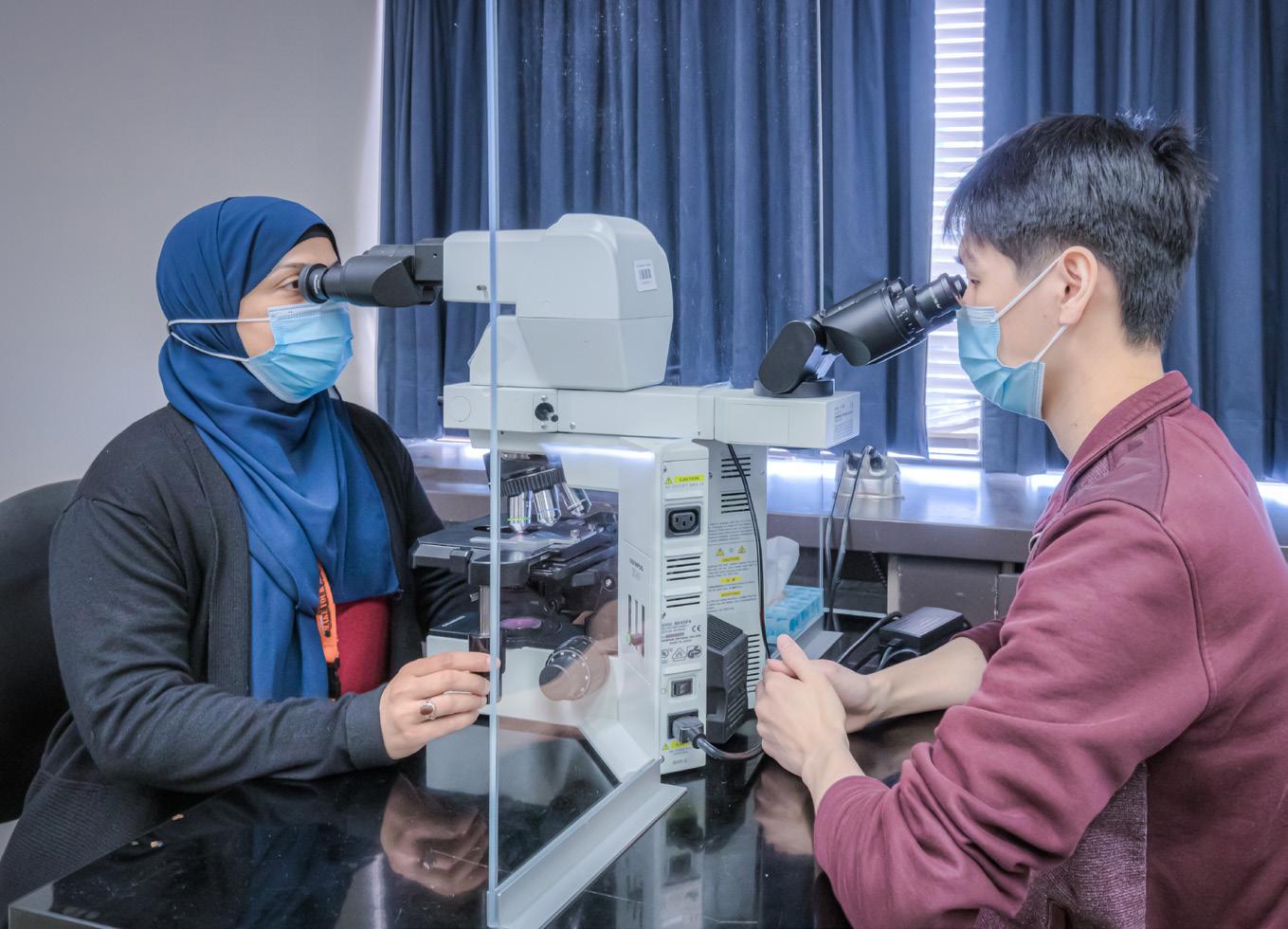
• Being an integral part of the health care team, including working with pathologists
Cytotechnologists play a crucial role in the fight against cancer by examining human cells and preparing reports on any abnormal results for a pathologist who will make a definitive diagnosis based upon the Cytotechnologist’s initial findings. Cytotechnologists detect and diagnose precancerous cellular changes by looking at specimen slides taken from Pap smears, the lung, bladder, lymph nodes, thyroid gland and other parts of the body. In this profession, a Cytotechnologist may spend up to seven hours per day working at the microscope.
Though there is limited direct contact with patients, Cytotechnologists play a vital role in the health care team.
Most Cytotechnologists work in hospitals or community laboratories, but they may also find employment in areas such as laboratory management, research, education, sales and marketing and technical consulting.
“The Diagnostic Cytology program harmonizes a mixture of theoretical concepts with practical application guided by fantastic instructors.”
Brian S. Diagnostic Cytology Student
Credential Earned Advanced Diploma
Program Length 2 years (full-time)
Program Delivery Online, In-Person for Digital Practicums
Start Date September 2023
Application Deadline February 1, 2023
Applicants must have completed an undergraduate Bachelor’s degree with a minimum cGPA of 2.70 (based on OMSAS* Scale)
• Successful completion of a postsecondary level course in basic statistics. Applicants may submit proof of registration to a college/university level course at the time of application
• All applicants for whom English is a second language must provide proof of English language assessment
• Computer literacy is required
All applicants are required to submit an Applicant Experience Checklist (found on Admission Requirements for Full Time Programs page on michener.ca).
*Visit ouac.ca for Ontario Medical schools grade conversion.
Michener’s newest program, Digital Health and Data Analytics, is a comprehensive two-year program dedicated to training learners in digital health, virtual care, artificial intelligence (AI), machine learning, and data analytics. This program was purpose-built for learners who see themselves contributing to the rapidly evolving digital world and its impact on health care. Designed to be pragmatic, practical and job oriented, this unique, cutting-edge program will prepare learners for an exciting career in digital health, data science and AI in health care and beyond. The program delivery is flexible to allow learners to pursue the program while continuing to work and will be delivered entirely online, both synchronous and non-synchronous. If learners are unable to commit to full-time practicums in semester 5 and 6 there is an option
to exit after four successful semesters, having met the requirements of a Post-Diploma Certificate. Learners will have two semesters of workplace practicum experience in addition to a sub-specialty course to complete the six-semester Advanced Diploma program. Please contact dhda@michener.ca for additional questions about this program.
• How to design and provide patient care in an increasingly digitized, machine and data-driven health care environment
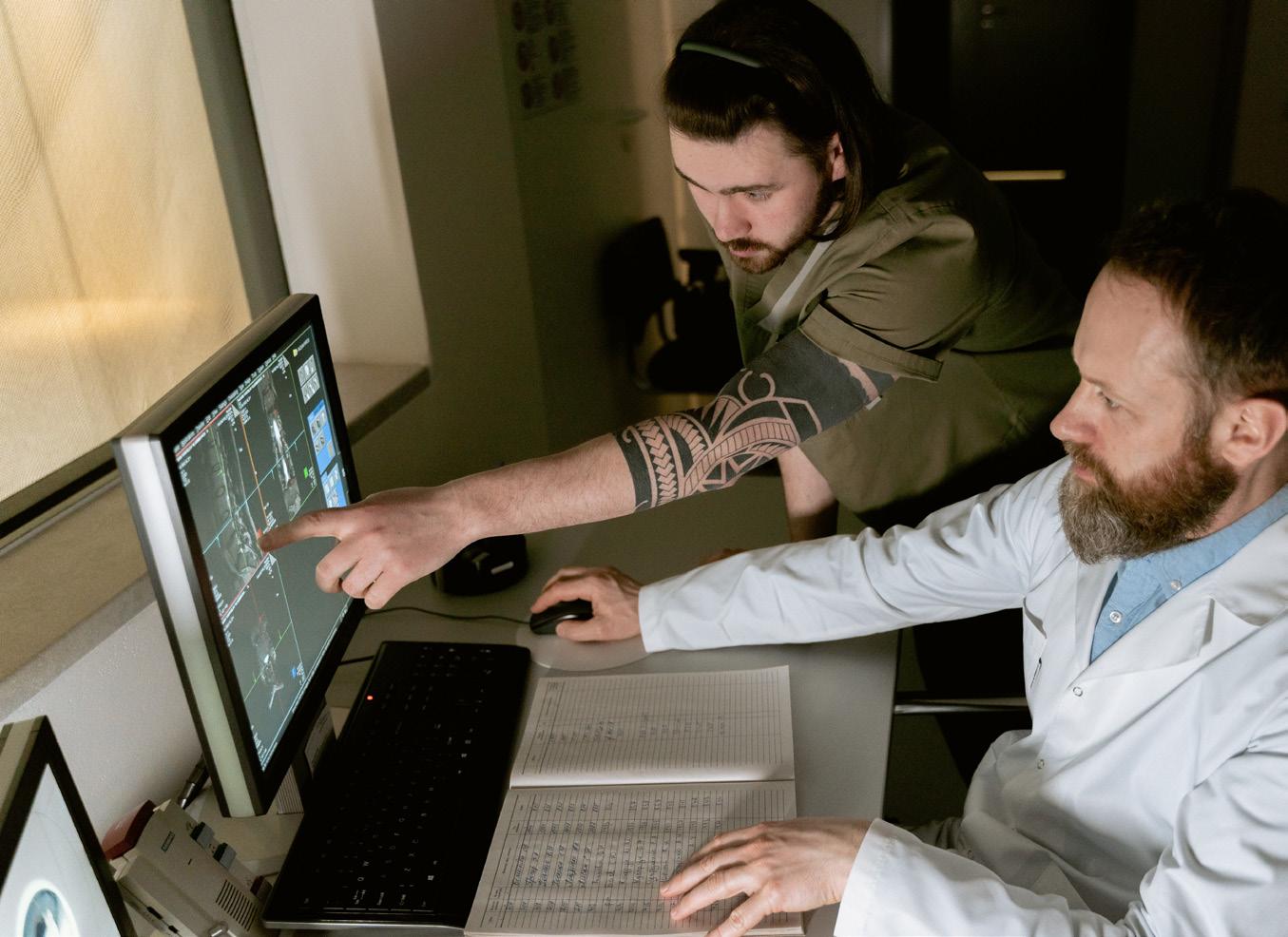
• Key concepts, issues and challenges in both digital health and data analytics
• The capabilities of AI and machine learning and the role it plays in patient-driven health care and personalized medicine
• Best practices in both design thinking and implementation science
• How to generate and implement solutions and data-driven strategies using quality data and evidence-based practice
Our health care system needs leaders, educators and advocates for technology, the use of digital solutions, AI in health care and beyond. These professionals will have the training and education to use digital systems to enable data-driven and integrated health care strategies – as well as enhance and connect care models using quality data and evidence-based practices. They will be equipped with tools in stakeholder engagement, design thinking, and implementation science, critical to leverage the buy-in and infrastructure necessary to advance AI and digital solution. Graduates of this program will be able to facilitate the integration of machine learning, clinical algorithms, AI and smart systems into clinical environments – either as clinical employees or as industry consultants –and help develop and introduce rapidly-emerging technologies.
Graduates of this program can work with a variety of organizations and other institutions that impact health care, including hospitals, government, consulting and technology companies –both public and private. They will bridge the technology and clinical gap through handson data science, VR, machine learning and other initiatives to improve patient outcomes and health care delivery. They will apply design thinking approaches to rapidly adapt, innovate and implement new technologies as part of a health care team or with an industry partner.
“I entered the DHDA program as a frontline clinician with a keen interest in technology. I have gained applicable and valuable knowledge that has already led me to advance in my current career.”
Theatania M. Digital Health & Data Analytics Student
Length 2 years (full-time)
Delivery
site with online components
Date September 2023
Deadline February 1, 2023
A) Bachelor of Science with a minimum cGPA of 3.0 on the OMSAS* scale and one (1) of the following requirements:
• At least two (2) of the following university-level genetics courses completed within the last 10 years with a minimum grade of 70%: 0.5 credit in Human Genetics (one-semester course)‡ 0.5 credit in Molecular Genetics (one-semester course)‡ or
B) Canadian Certified Medical Laboratory Technologist (MLT) with a minimum cGPA of 3.0 on the OMSAS* scale during a degree or diploma and one (1) of the following requirements:
• At least two (2) of the following university-level genetics courses completed within the last 10 years with a minimum grade of 70%: 0.5 credit in Human Genetics (one-semester course)‡ 0.5 credit in Molecular Genetics (one-semester course)‡
All applicants are required to submit an Applicant Experience Checklist. CASPer assessment is mandatory. (found on Admission Requirements for Full Time Programs page on michener.ca).
*Visit ouac.ca for Ontario Medical schools grade conversion. ‡ Michener’s Human Genetics (HGCE110) and Michener’s Molecular Genetics (MGCE110) courses fulfill these requirements.
The Genetics Technology program is one of only two programs offered in Canada. Graduates are eligible to write the national certification examination conducted by the Canadian Society for Medical Laboratory Science (CSMLS).
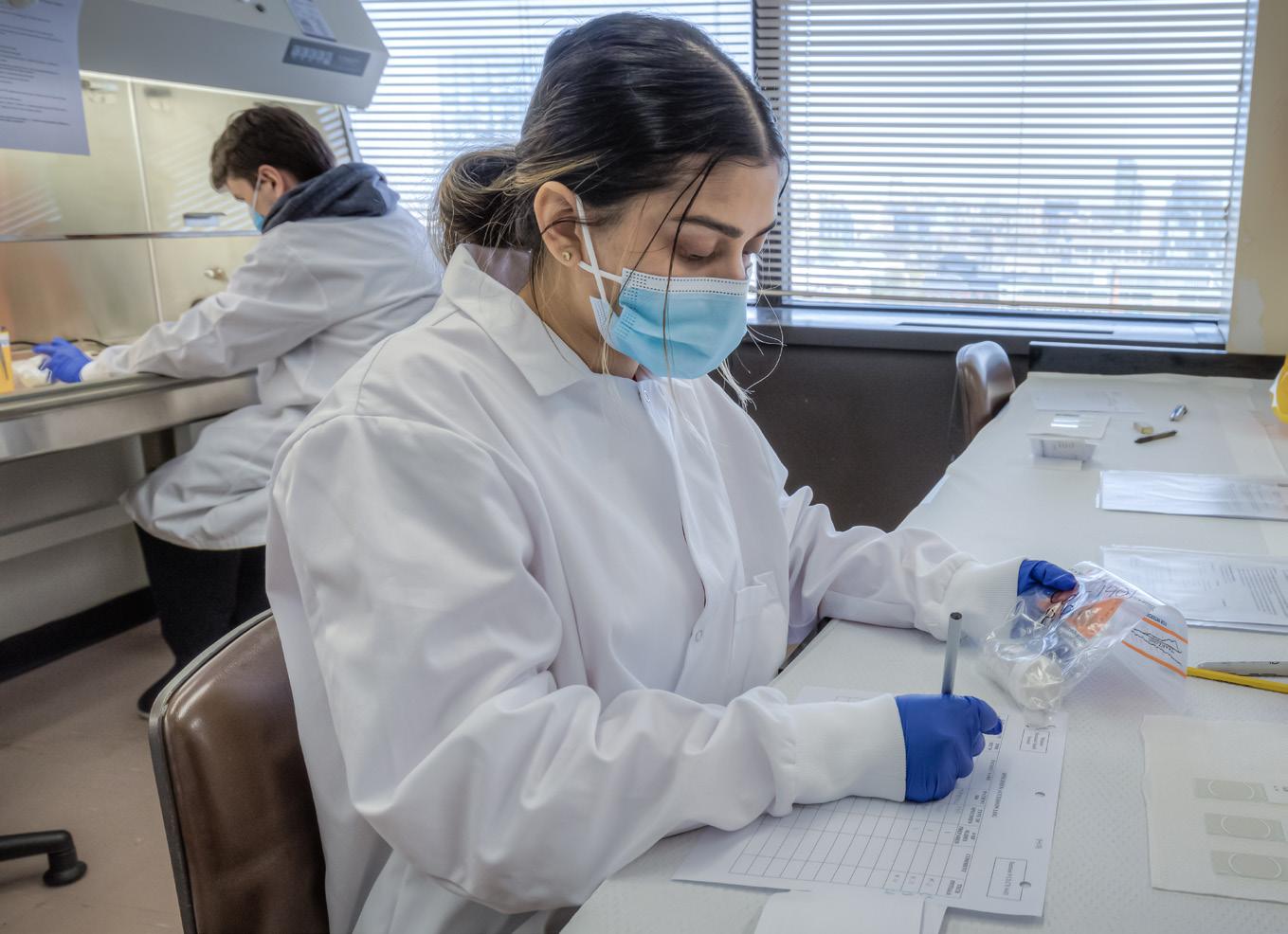
The Genetics Technology Program is accredited by Accreditation Canada. Accreditation is a quality improvement process that ensures educational programs meet national standards and that students acquire the knowledge, skills and competencies for safe and effective care at entry to practice.
• How to perform analyses to diagnose and treat patients with genetic diseases, as well as monitor and prevent disease
• How to use laboratory techniques and instrumentation to explore genetics of human cells
• How to work both independently and as part of a health care team to produce high quality, accurate patient results
Genetics technology involves performing laboratory tests to help physicians diagnose, treat and monitor a wide variety of genetic disorders and many types of cancer. Genetics Technologists use a wide range of instrumentation and analytical software – from microscopes to the latest genomic analyzers. The field of genetics technology is rapidly evolving and expanding as new discoveries, technologies and techniques become integrated into the clinical environment. Technologists work both independently and as a part of a health care team to produce high quality, accurate patient results. Although there is limited patient contact, the results generated have a direct impact on patient treatment and care.
Genetics Technologists work in a variety of settings including hospitals, private and public research laboratories and academic facilities.
Cindy T. Genetics Technology Student“My faculty went above and beyond to create an enriching learning environment. I gained both the skills and confidence to apply what I learned in class to a clinical setting.”
Credential Earned Advanced Diploma
Program Length 2 years (full-time)
Program Delivery On site with online components
Start Date September 2023
Application Deadline February 1, 2023
A) Bachelor of Science degree or Bachelor of Arts degree in Kinesiology with a minimum cGPA of B (75%) on the OMSAS* scale and a minimum grade of 75% in:
• Gross Human Anatomy – 1 semester (0.5 credit)‡
• Human Physiology – 1 semester (0.5 credit)‡
‡ Michener continuing education course AP807 fulfills this requirement or
B) Canadian regulated health care professional (i.e. Chiropodist, Nurse, Radiological Technologist, Radiation Therapist, Respiratory Therapist, etc.) with a minimum three-year degree or diploma in their field of study with a minimum cGPA of B (75%) on the OMSAS* scale.
All applicants are required to complete the CASPer assessment. (Found on Admission Requirements for Full-Time Programs page on michener.ca)
*Visit ouac.ca for Ontario Medical schools grade conversion.
The Ultrasound program provides students with the required knowledge and skills necessary to challenge the Generalist Credentialing exams (CORE, abdomen/superficial structures, obstetrics/gynecology and generalist vascular) offered by Sonography Canada. Additionally, graduates are eligible to apply for the American Registry of Diagnostic Medical Sonography (ARDMS) registration exams. During the clinical practicum students complete the Sonography Canada Canadian Clinical Skills Assessment (CCSA™) and must be successful in this assessment to graduate from the Ultrasound program at Michener. Note: Sonography Canada Generalist Certification qualifies graduates to apply for registration with the College of Medical Radiation and Imaging Technologists of Ontario (CMRITO), which is a requirement to practice ultrasound in Ontario. The Michener Ultrasound program is accredited by Accreditation Canada. Accreditation is a quality improvement process that ensures educational programs meet national standards and that students acquire the knowledge, skills, and competencies for safe and effective care at entry to practice.
• Cross sectional imaging, ultrasound physics, relevant health care legislation, introductory research skills and the role of sonographers as regulated health care professionals.
• Normal, variant, abnormal and urgent ultrasound findings of the human abdomen, thyroid, breast, male and female reproductive systems and obstetrics sonography.
• Patient care skills including obtaining clinical history, explaining procedures, answering questions, and acquiring informed consent.
• Professional communication, and safe practice skills, that are ethical, compassionate and nonjudgemental.
• Perform ultrasound examinations by optimizing machine technical factors, transducer placement and patient instruction for a variety of organs, body regions and anatomical systems.
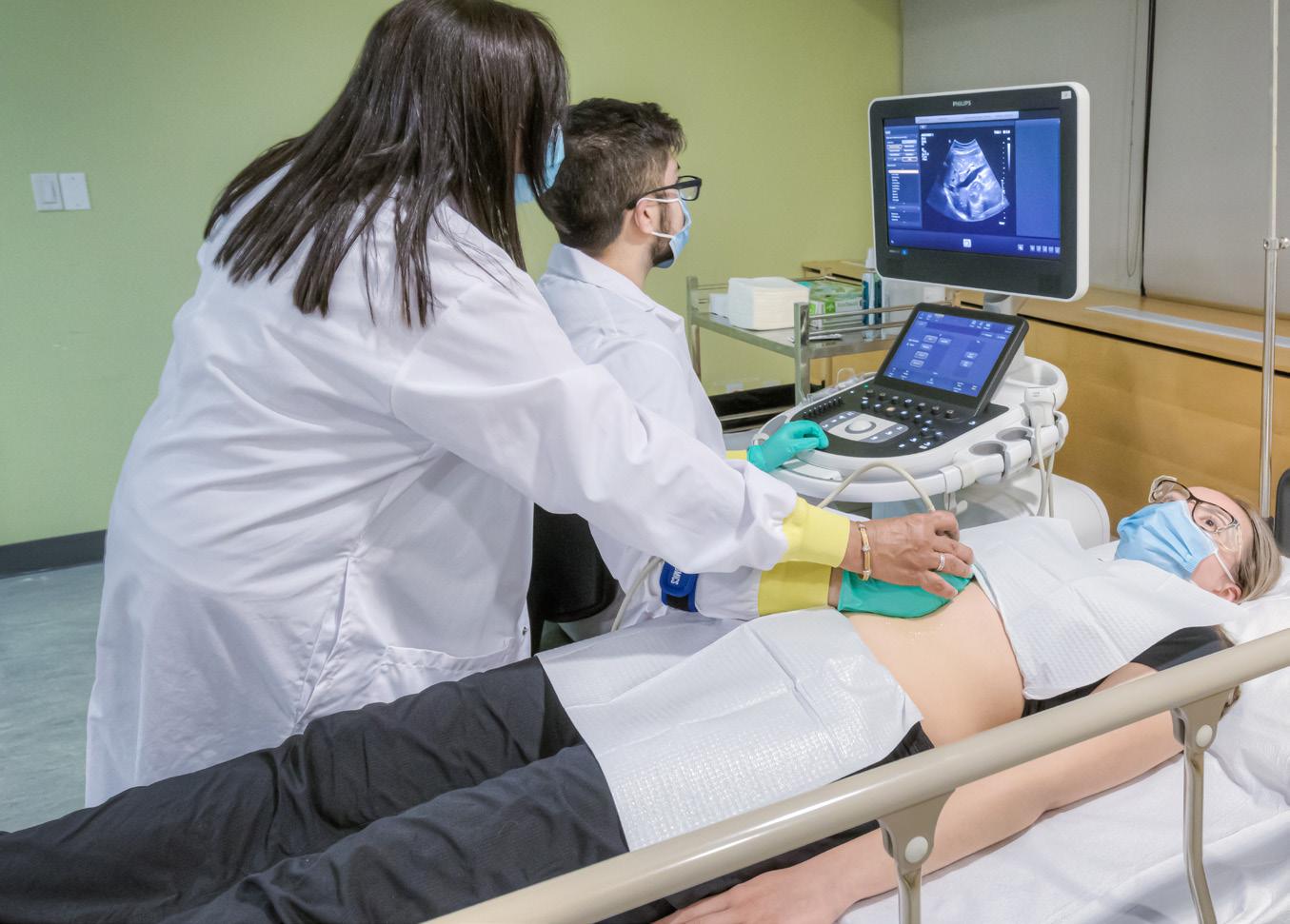
• Writing technical reports of the ultrasound findings using medical and sonographic terminology
• Safe ergonomic practices and universal precautions and disinfection protocols.
Diagnostic medical sonography (ultrasound/ sonography) is an established medical imaging technology that is an integral part of the diagnostic process in all health care institutions in Canada. Sonography uses high-frequency sound waves to display real time images of the soft tissue structures such as the abdomen, pelvis, breast, thyroid, parathyroid, salivary glands, as well as muscles and vessels in the human body. Diagnostic Ultrasound also plays a large role in assessing fetal anatomy, development and well-being. This technology is also utilized to assess the viability of different types of organ transplants and vessels by assessing the vascular flow. Sonographers are highly skilled health care professionals who use ultrasound technology to assess, image and report on the anatomy scanned, correlate relevant clinical history and lab data to the ultrasound findings and write a technical impression of the ultrasound findings. Sonographers provide competent, ethical, compassionate and non-judgmental care to all their patients and work collaboratively with other health professionals.
Graduates are employed in diagnostic imaging ultrasound departments in a variety of settings including hospitals, and independent health facilities. They may also work in government agencies, medical imaging equipment/software sales and support, research and education. Graduates can further specialize in careers such as Magnetic Resonance Imaging (MRI), health informatics and management.
“The program takes a well balanced approach toward both theoretical and practical learning. The faculty are experienced in health care, making them great mentors.”
Credential Earned
Bachelor of Science in Medical Radiation Sciences from the University of Toronto and Advanced Diploma from The Michener Institute of Education at UHN
Program Length 3 years (full-time)
Program Delivery
site with online components (University of Toronto’s St. George Campus and Michener’s St. Patrick Campus)
Date September 2023
A minimum of one year (10 single-semester courses) of university education, with successful completion of one single-semester course in each of the following prerequisite subjects:
Biology
Mathematics
Physics
Social Science
A minimum cGPA of BGrade 12 U-level Chemistry or equivalent
For specific details on admission requirements, deadlines and processes, please visit the University of Toronto, Department of Radiation Oncology, Medical Radiation Sciences web page at www.medicalradiationsciences.ca
The joint University of Toronto / Michener Nuclear Medicine & Molecular Imaging Technology program’s hybrid learning style allows students to participate in both online and in-person classroom learning. Theory is put into practice by examining increasingly complex case studies and applying knowledge in both simulated and clinical environments. The program allows students to experience all aspects of the profession, including preparing radiopharmaceuticals in Michener’s radiopharmacy lab, imaging using gamma cameras, SPECT/ CT equipment, patient care, research and interprofessional collaboration. Graduates are eligible to write the national certification examination conducted by the Canadian Association of Medical Radiation Technologists (CAMRT). Certification qualifies graduates to work across Canada and allows them to apply for registration as a Nuclear Medicine
Technologist with the College of Medical Radiation and Imaging Technologists of Ontario (CMRITO).
The NMMIT program is accredited by Accreditation Canada. Accreditation is a quality improvement process that ensures educational programs meet national standards and that students acquire the knowledge, skills and competencies for safe and effective care at entry to practice.
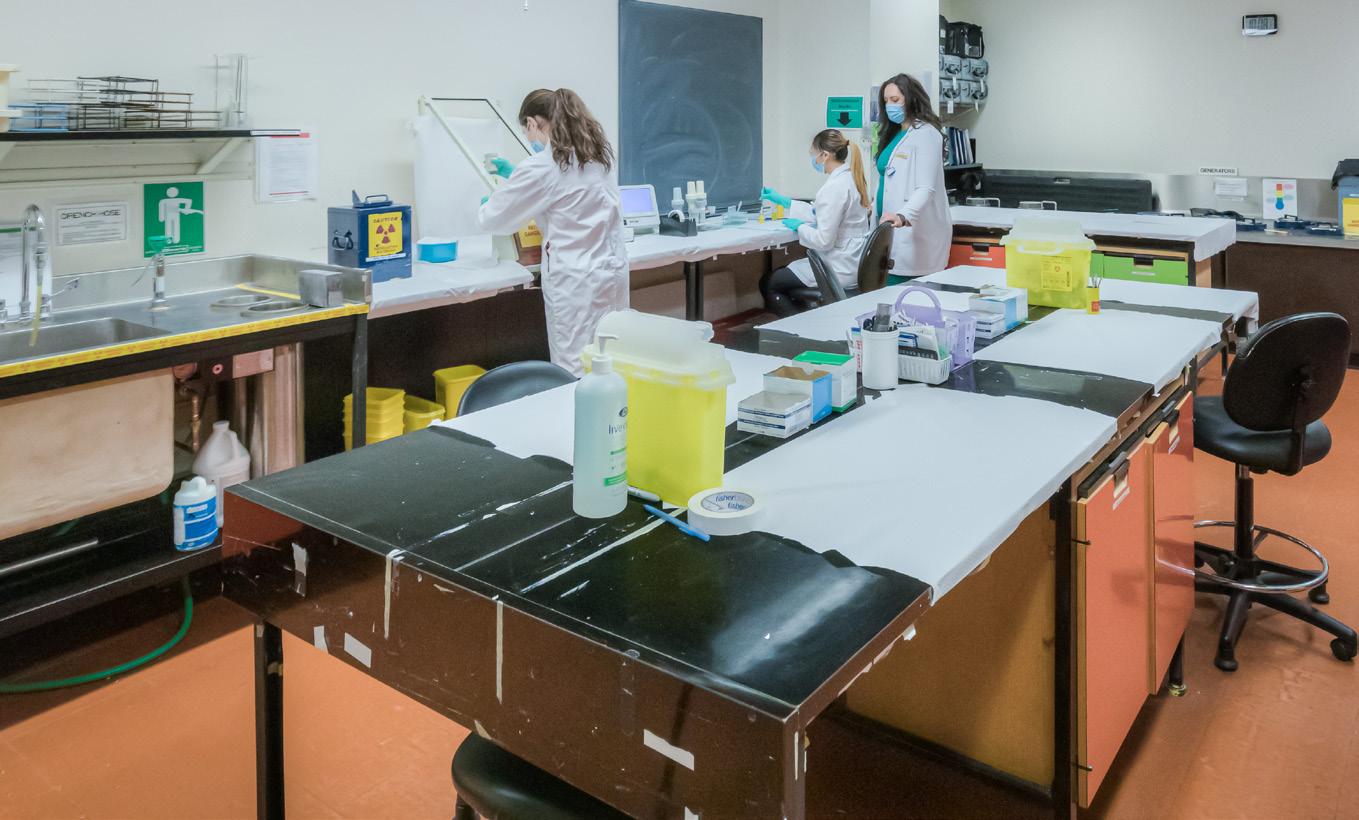
• Learning and applying patient centered care skills and interprofessional communication
• Performing radiopharmaceutical and non-radioactive pharmaceutical administration using specialized techniques for intravenous, oral, inhalation, subcutaneous and intramuscular drug administration
• Acquiring and analyzing diagnostic images using the latest in gamma camera, positron emission tomography (PET), computed tomography (CT), and hybrid imaging systems, as well as performing X-ray bone mineral density (BMD) testing, in-vivo radioactive non-imaging laboratory studies and electrocardiography (ECG)
• Explaining imaging and therapy procedures to the patient, answering questions and providing education on radiation safety
• Following radiation disposal and safety procedures and keeping detailed records of procedures
• How to perform molecular imaging and therapy treatments for a variety of organ systems and conditions as part of a multidisciplinary health team
• Learning innovative technologies and clinical approaches in the molecular imaging fields involving new radiopharmaceuticals, imaging technologies with PET and theranostic applications
Nuclear Medicine Technologists (NMTs) apply detail oriented technical skills in a compassionate, patientfocused model of care. They use minimally invasive procedures targeted at the diagnosis of specific disease pathologies based on their cellular function in comparison to normal tissues. The highly specific nature of how tracers localize in the body and are imaged, allows for comprehensive diagnostic information using minimally invasive procedures. Determination of tumour or injury location, size, treatment planning and response to treatment can all be accomplished with a small injection of a tracer in a patient’s arm for the majority of procedures with minimal pain or risk of adverse events.
Molecular Imaging uses highly specialized imaging cameras capable of detecting the radiation coming from the tracer inside the patient and form an image which visualizes the biochemical events at the cellular and molecular level, which is unique to any other imaging modality. This is a field of diagnostic imaging that is continually advancing. Its ability to identify regions of pathology and mechanisms of disease, has shown effective for predictions in tumor responsiveness to radiation treatments prior to their administration, which is a growing field known as nuclear theranostics.
Graduates are employed in a variety of clinical environments including community or teaching hospitals, independent health facilities, research institutes, public health institutions, regulatory bodies, commercial radiopharmacies, education, and medical imaging equipment sales or applications.
“The program is exceptional because you gain extensive knowledge about nuclear medicine imaging, get hands on experience with gamma cameras and practice your patient care skills.”
Victoria P.
Credential Earned
Bachelor of Science in Medical Radiation Sciences from the University of Toronto and Advanced Diploma from The Michener Institute of Education at UHN
Program Length 3 years (full-time)
On site with online components (University of Toronto’s St. George Campus and Michener’s St. Patrick Campus)
Start Date September 2023
Application Deadline February 1, 2023
A minimum of one year
minimum cGPA
specific details
single-semester
of university education, with successful completion of one single-semester course
each of the following prerequisite subjects:
please visit
University
Toronto,
Medical Radiation Sciences web page
Graduates of the University of Toronto/Michener Radiation Therapy program will practice all aspects of the profession, including monitoring, educating and counselling patients; calculating and planning treatments; positioning and delivering treatment to patients using ionizing radiation, all in an interprofessional environment. The program prepares students with fundamental and professional knowledge, skills and critical thinking before being placed into the clinical environment. The curriculum
is constructed to provide students with opportunities to practice in a safe simulated clinical environment before proceeding to their final clinical placement to demonstrate competence.
Graduates are eligible to write the national certification examinations conducted by the Canadian Association of Medical Radiation Technologists (CAMRT). Certification qualifies graduates to work across Canada and allows them to apply for registration as a Radiation Therapist with the College of Medical Radiation and Imaging Technologists of Ontario (CMRITO).
The Radiation Therapy Program is accredited by Accreditation Canada. Accreditation is a quality improvement process that ensures educational programs meet national standards and that students acquire the knowledge, skills and competencies for safe and effective care at entry to practice.

• Positioning patients accurately for radiation therapy treatment, including accurately performing imaging procedures
• Working with radiation oncologists, physicists and other members of the health care team to design and assess optimized, individualized treatment plans using specialized computer software
• Assessing and creating individualized patient care plans for management of radiation therapy treatment
• Explanation of the potential side effects of radiation therapy treatment and how to monitor, educate and support patients and their families
Radiation therapy is the use of ionizing radiation to treat patients with cancer. Radiation Therapists work closely with an interdisciplinary health care team, comprising of radiation oncologists, physicists, nurses and other health care professionals to provide a compassionate, patient-focused model of care. Radiation Therapists use a variety of advanced computer systems and sophisticated radiation therapy equipment to design treatment plans and deliver radiation to treat patients with cancer. These professionals play a vital role in providing patient education and support throughout the radiation therapy treatment pathway, including counselling patients on expected side effects of radiation and ways to minimize them.
Graduates from the program find employment in cancer centres, clinical research, education, government agencies, medical equipment and software sales, support and applications. Graduates can further specialize in magnetic resonance imaging (MRI) and management.
Mathew M. Radiation Therapy Student“Problem solving and communication skills are important to succeed in the Radiation Therapy program. The faculty are amazing and will prepare you for success.”
Credential Earned
Bachelor of Science in Medical Radiation Sciences from the University of Toronto and Advanced Diploma from The Michener Institute of Education at UHN
Program Length 3 years (full-time)
On site with online components (University of Toronto’s St. George Campus and Michener’s St. Patrick Campus)
Start Date September 2023
Application Deadline February 1, 2023
A minimum of one year
courses) of university education, with successful completion of one
each of the following prerequisite subjects:
minimum cGPA
specific
Medical Radiation Sciences web page
University of Toronto,
Graduates of the Radiological Technology program will be able to provide effective and compassionate care for patients while carrying out diagnostic medical imaging procedures. The program will prepare students to communicate with patients and members of the health care team, as well as operate sophisticated medical imaging equipment. The program encourages students to develop the necessary technical, critical thinking and problem-solving skills to complete and adapt radiological procedures based on a patient’s medical condition. Utilizing the extensive on-site equipment, such as the X-ray rooms and Computerized
Tomography (CT) suite, the program provides students with the opportunity to gain competence and confidence in a simulated environment before proceeding to the clinical practicum.
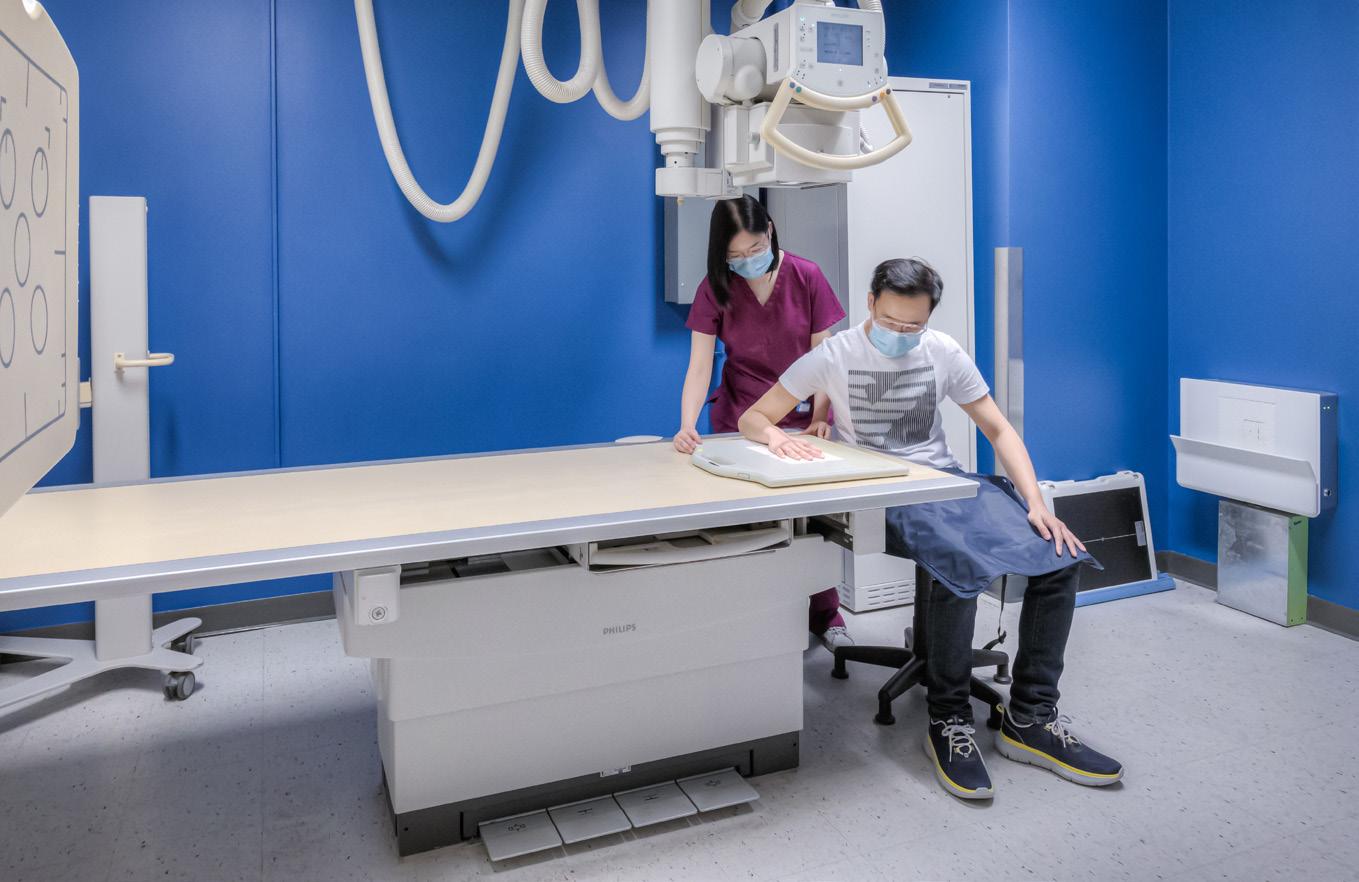
Graduates are eligible to write the national certification examination conducted by the Canadian Association of Medical Radiation Technologists (CAMRT). Certification qualifies graduates to work across Canada and allows them to apply for registration as a Radiological Technologist with the College of Medical Radiation and Imaging Technologists of Ontario (CMRITO).
The Radiological Technology Program is accredited by Accreditation Canada. Accreditation is a quality improvement process that ensures educational programs meet national standards and that students acquire the knowledge, skills, and competencies for safe and effective care at entry to practice.
• Performing competent diagnostic procedures in all aspects of medical imaging as part of an interprofessional team
• Operating and managing imaging systems including medical imaging technology in X-ray, fluoroscopy, CT, mammography, interventional radiology and bone mineral densitometry (BMD) to ensure exceptional diagnostic quality
• Analyzing and interpreting images to determine sufficient diagnostic quality
• Developing proficient skills in communication with patients, physicians and other members of the team, confirming appropriate diagnostic procedure/intervention
• Assessing and responding to the patient's needs and condition prior to, during and post diagnostic procedure in a safe and effective manner
Radiological Technologists provide medical imaging services in a compassionate, patient-focused model of care. Technologists operate a variety of medical imaging equipment in areas such as general radiography, CT, fluoroscopy, mammography and BMD. Technologists are responsible for verifying the appropriateness of the requested procedures through consultation with the health care team. In producing diagnostic images, technologists provide optimal care for the patient, use minimal radiation and employ appropriate radiation protection measures based on the patient’s condition. The quality of the imaging provided is reviewed by the technologist to allow for diagnosis. The field of radiological technology also involves participation in therapeutic procedures in CT, the operating room and the interventional suite.
Graduates are employed in a variety of areas including hospitals and independent health facilities, government agencies, medical imaging equipment and software sales and support, new product development and education. Graduates can further specialize in magnetic resonance imaging (MRI), ultrasound, health informatics and management.
“The Radiological Technology program allowed me to experience hands-on learning with exceptional X-ray, CT and health care equipment, along with excellent instructors who want their students to succeed.”
Cara
Credential Earned Master of Science Degree
Program Length 2 years (full-time)
Program Delivery On site with online components
Start Date Late August 2023
Application Deadline February 1, 2023
A) Bachelor of Science with a minimum cGPA of 3.0 on the OMSAS* scale and a minimum grade of 70% (B-) in each of the following one-semester (0.5 credit) university-level courses:
• Gross Human Anatomy‡
• Gross Human Physiology‡
• Algebra or Calculus
• General Physics
• Chemistry
‡ Michener continuing education course AP807 fulfills this requirement or
B) Bachelor of Science with a minimum cGPA of 3.0 on the OMSAS* scale and:
• Registered Respiratory Therapist (RRT) or Registered Nurse (RN)
• One-year critical care experience within the last 5 years
All applicants are required to submit an Applicant Experience Checklist, Letter of Intent and at least one Letter of Recommendation (Academic or Professional).
CASPer assessment is mandatory. (found on Admission Requirements for Full Time Programs page on michener.ca).
*Visit ouac.ca for Ontario Medical schools grade conversion.
For further information about the Master of Science degree in Cardiovascular Perfusion, please contact admissions@michener.ca.
The Michener Institute of Education at UHN has been granted a consent by the Minister of Colleges and Universities to offer this applied degree for a five-year term starting July 2021. Michener shall ensure that all students admitted to the Cardiovascular Perfusion program during the period of consent will have the opportunity to complete the program within a reasonable time frame. The Cardiovascular Perfusion program is the only Master’s level program offered in Canada and is accredited by Accreditation Canada. Accreditation is a quality improvement process that ensures educational programs meet national standards and that students acquire the knowledge, skills and competencies for safe and effective care at entry to practice. Graduates are eligible to write certification examinations in both Canada (Canadian Society of Clinical Perfusion) and in the USA (American Board of Cardiovascular Perfusion).

• Detailed anatomy and physiology of the cardiovascular and related systems
• The operation of the heart-lung machine and cardiopulmonary support devices
• Comprehensive perfusion theory
• Principles of Pharmacology as it relates to perfusion science
• Principles of Hemotherapy and transfusion science
• Knowledge of pathological mechanisms essential for understanding relevant cardiopulmonary diseases
• Patient care and professionalism in the operating room and other critical care areas of the hospital
• Applied research experience through the completion of a capstone project
• Professional development as it relates to perfusion practice in Canada
Perfusionists work under the direct clinical responsibility of cardiac surgeons and anesthesiologists as part of the interprofessional operating room team. Their primary role is to maintain a patient’s respiration, circulation and physiological state, using state-of-the-art equipment like the heart-lung machine during surgery. They are also trained to safely administer blood products and drugs as part of their scope of practice. Working in the cardiac operating room is physically demanding and shifts are typically 10-12 hours at a time as surgery can be extremely complex and lengthy.
Cardiovascular Perfusionists work in hospitals that have cardiac surgery programs. The majority of their time is spent in the cardiac operating room, but they also work in other critical care areas such as the ICU and Cath Lab. Other unique career opportunities can be found in transplant programs, education, commercial sales and research.
Student“The hands-on learning in the CVP lab equipped with high fidelity simulators is a great accompaniment to the lecture component. I look forward to using the skills and experience I have acquired from the program in my career as a perfusionist.”
Kiera M.
Credential Earned Graduate Certificate Program Length 1 year (part-time)
Program Delivery
On site at Toronto General Hospital plus an evidence-based research project
Start Date Continuous
Hospital Vascular clinic will be arranged upon
This specialized program will support Chiropody/Podiatry graduates who are caring, progressive practitioners with a desire to deliver more advanced care, including:
• Patient-focused techniques for prevention and treatment of high-risk foot and limb conditions
• Emphasis on conservative management, using a large variety of dressings, products and modes for individualized treatment
A Fellow is a licensed health care professional who undertakes specialized clinical training and education. A component of a Fellowship includes researching best practice and opportunities for improving quality care. The Advanced Foot and Wound Care Fellowship will emphasize knowledge sharing to advance the quality of care for Ontarians, especially those living with Diabetic Foot Ulcers (DFU).
The Advanced Foot and Wound Care Fellow will be immersed in clinical interprofessional learning and care teams based at Toronto General Hospital’s J. Douglas and Tennys Hanson Foot and Wound Clinic.
• Advanced skills and best practices in treating foot and wound care emphasizing evidencebased approaches
• Explore new technical applications, advanced knowledge and interprofessional skills needed to become a valuable member of the foot and wound care team
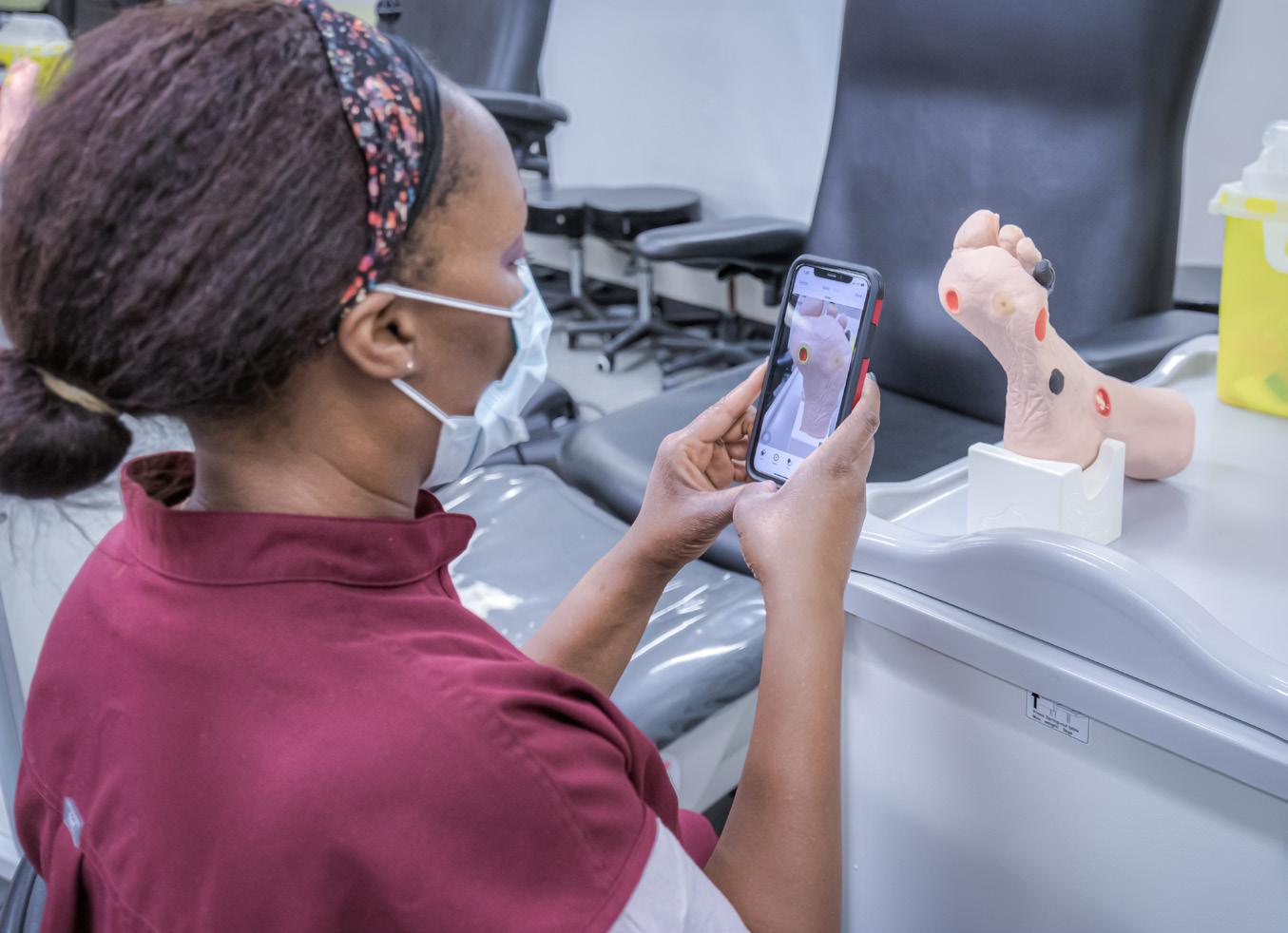
• Deep clinical reasoning and decision-making skills focusing on customizing treatment plans for patients.
• Dedicated time to Fellow’s approved area of research and knowledge sharing.
“The Fellowship offers a unique opportunity to work with patients as part of an interprofessionally diverse health care team.”
Maryam D.
on-site residential
2023
• Registered Respiratory Therapist (RRT) or Registered Nurse (RN)
• Two years or full-time equivalent (>4000 hours) of critical care experience within the past four years which must include experience with therapeutic interventions related to airway management, mechanical ventilation, arterial or intravenous access, reading ECGs, providing pharmacological therapies, and managing hemodynamic status, ideally in the ICU, ER, NICU, or PICU environments
• Letter of support for clinical education from Chief of Anesthesia at base site.
Michener’s Anesthesia Assistant program consists of three semesters. The cohort starts in September with a comprehensive online course over the first 13 weeks. During Week 14, the students attend 5 days of synchronous online sessions that include case presentations. In the second term, the program consists of online collaborative learning. Students must be available online one day per week for 14 weeks, plus two 5-day residency weeks that include simulations and evaluations in the classroom simulation lab.
The clinical semester is offered following successful completion of semesters one and two. The student completes competencies and rotations in adult, pediatric, obstetrical, regional and cardiac anesthesia at their designated base site. When the base site cannot offer all
rotations, Michener will arrange for external rotations in these areas, which are up to two weeks in length. All students will complete at least one external rotation.
The Anesthesia Assistant Program is accredited by the Canadian Society of Respiratory Therapists (CRST). Accreditation is a quality improvement process that ensures educational programs meet national standards and that students acquire the knowledge, skills, and competencies for safe and effective care at entry to practice.
• How to evaluate the pre, peri and postoperative patient
• How to perform procedural sedation
• How to manage special anesthetic considerations
Anesthesia Assistants (AA) work in operating rooms as mid-level anesthesia providers and are part of Anesthesia Care Teams (ACT) in many facilities across Canada. The AA works under the direct supervision of the anesthesiologist and under the authority of medical directives. Significant growth in the profession is anticipated due to the aging population and associated rise in surgical procedures, including those outside of the operating room, such as interventional radiography and catheterization labs.
Most Anesthesia Assistants work in the operating rooms of a hospital, but they can also be found in post-operative care areas, pain clinics and special procedure rooms.
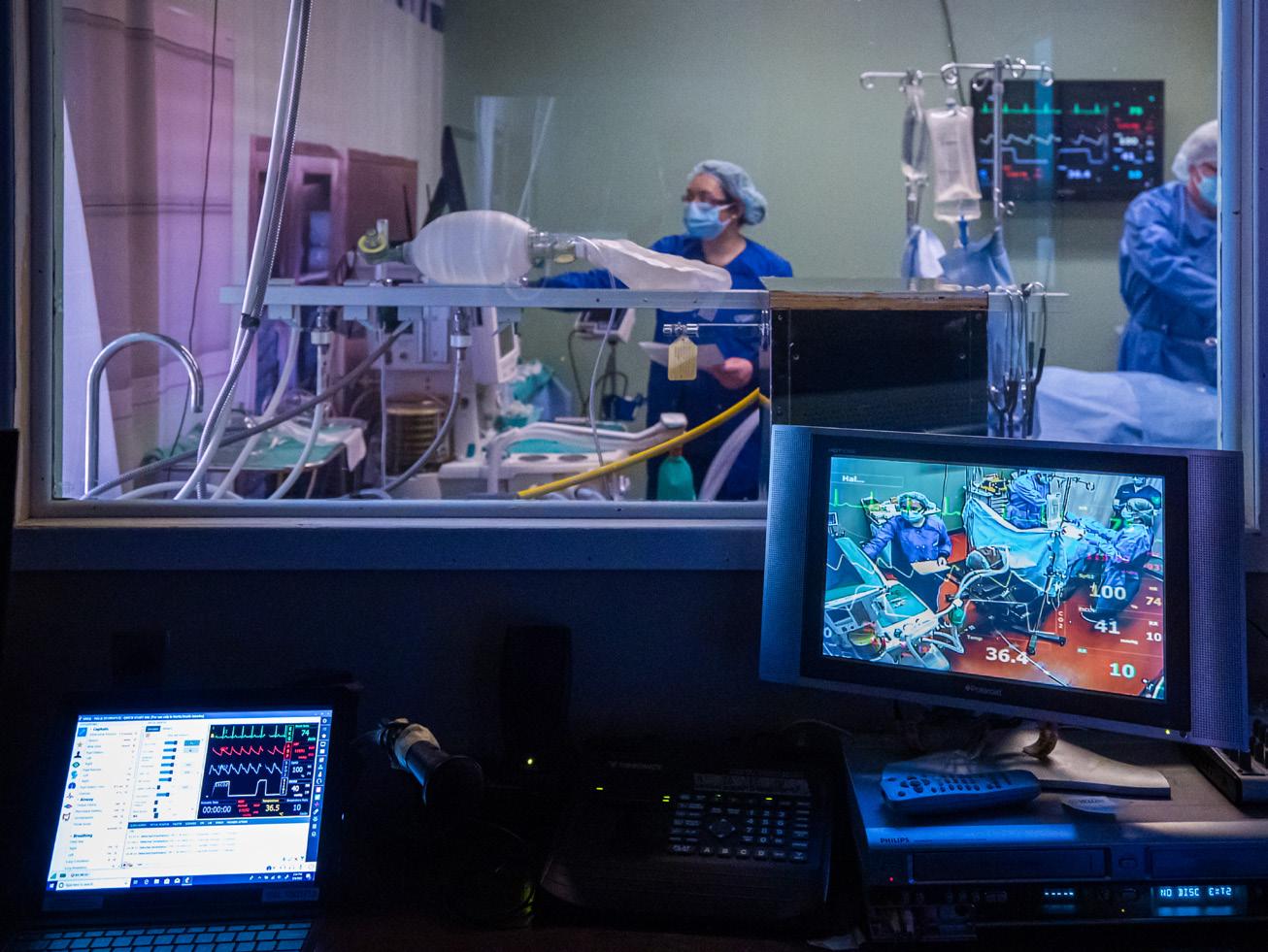
“Every week we participate in online discussions with experienced, practicing Anesthesiologists. This high-quality, personalized education has allowed me to gain a strong foundation for my future career.”
Peter K.
Program Length 4 semesters (3 part-time didactic semesters plus 1 full-time clinical semester)
Program Delivery Online Start Date September 2023
Application Deadline May 31, 2023
Applicants must be certified/licensed as a technologist* in one of the following disciplines:
• Nuclear Medicine (RTNM)
• Radiological Technology (RTR)
• Radiation Therapy (RTT)
• Ultrasound (RDMS) – note that RDCS certification does not meet the admission requirements of this program
*Internationally educated and trained applicants must meet the corresponding Canadian certification body requirements and should consult with:
• Canadian Association of Medical Radiation Technologists (CAMRT) for the Internationally Educated Medical Radiation Technologist (IEMRT) requirements; or
• Sonography Canada’s External Candidate requirements.
The Magnetic Resonance Imaging (MRI) program is a part-time program designed with the working medical radiation sciences professional in mind. This program consists of both didactic and clinical components spread across four semesters. The didactic courses are offered online (three part-time semesters). The final semester is the clinical semester; it begins with a mandatory four-day Clinical Readiness component to ensure that students are fully prepared to start their full-time clinical practicum (half day onsite at Michener required). Graduates are eligible to write the national certification examination administrated by the Canadian Association of Medical Radiation Technologists (CAMRT). Certification qualifies graduates to be eligible to work across Canada and allows them to apply for registration as an MRI Technologist with the College of Medical Radiation and Imaging Technologists of Ontario (CMRITO).
The MRI Program is accredited by Accreditation Canada. Accreditation is a quality improvement process that ensures educational programs meet national standards and that students acquire the knowledge, skills, and competencies for safe and effective care at entry to practice.
• Patient care and safety in the MRI environment
• Preparation and positioning of patients for their MRI examinations
• Use of sophisticated MRI scanners to perform complex cross-sectional imaging procedures
• How to apply knowledge of MRI physics and methodology, cross sectional anatomy and pathology to produce high-quality diagnostic MRI images
• Hybrid imaging and basic advanced techniques
MRI is an imaging modality that creates images of the body using radiofrequency waves in conjunction with extremely powerful magnets. This non-invasive technique relies on the magnetic properties of atoms (rather than radiation) and provides valuable diagnostic information to aid in patient management. MRI is widely used.
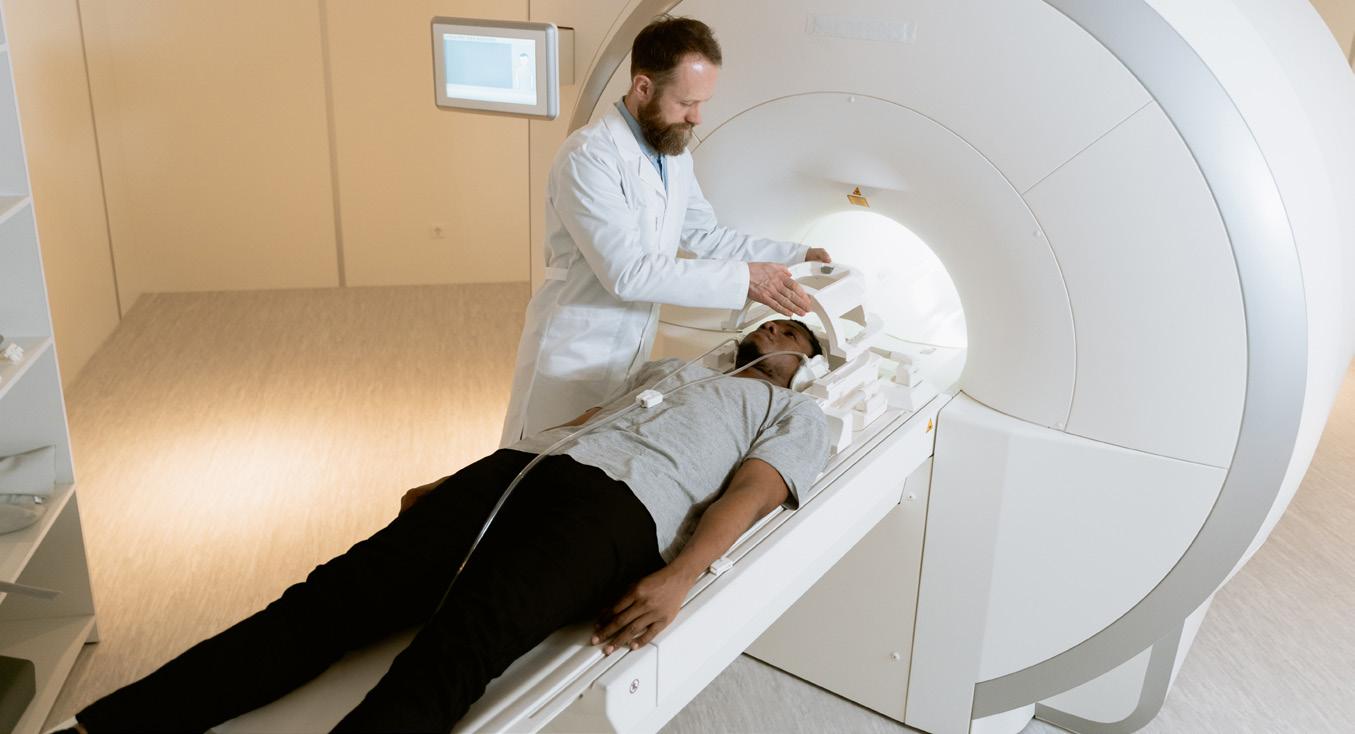
MRI technologists use their communication, patient-care and collaborative skills to interact with patients and other members of the health care team. They are responsible for the safety of patients and other staff members in the Magnetic Resonance environment. Using their knowledge of anatomy, physiology and pathology along with the principles of MRI physics and methodology, MRI technologists operate MRI scanners to create images of a patient’s body tissues, which physicians then use as an aid to diagnose patients. The skill of the MRI technologist is extremely important in obtaining high-quality diagnostic images. MRI technologists work with radiologists and other health care providers.
MRI Technologists find rewarding careers in clinical environments such as hospitals, mobile MR units and diagnostic imaging centres. Other career opportunities can be found in the areas of health informatics, digital health education, sales, applications and research.
“The MRI program instructors use firsthand clinical images and simulated software to prepare students for clinical placement.”
Nan J. Magnetic Resonance Imaging Student
Michener is excited to partner with you in your lifelong learning by designing and delivering continuing education and professional development programs that you can participate in online anywhere and anytime throughout your health care career. Michener offers a wide range of continuing education opportunities, including specialty courses, workshops and certificate programs to meet the needs of the health care system.
Certificate Programs, Courses and Workshops: Visit our website at michener.ca/ce to view all available individual continuing education courses. Students can register online for most continuing education courses and programs.
Artificial Intelligence in Health Care

Cannabis Educator
Chiropody Education
Diabetes Education
Clinical Management Medical Laboratory Sciences
Clinical Research Medical Radiation and Imaging
Diabetes Educator
Foundations of Psychedelic Psychotherapy
Imaging Informatics
Intraoperative Neurophysiological Monitoring
Leadership in Health Care Quality Management
Primary Care Education
Basic and Advanced Life Support
For more information and general inquires, contact us at ce@michener.ca or call 416-596-3117.
Bridging programs are designed for experienced Internationally Educated Health Professionals (IEHPs) who wish to practice as licensed health care professionals in Canada. Our three bridging programs are designed to help “bridge the gap” by:
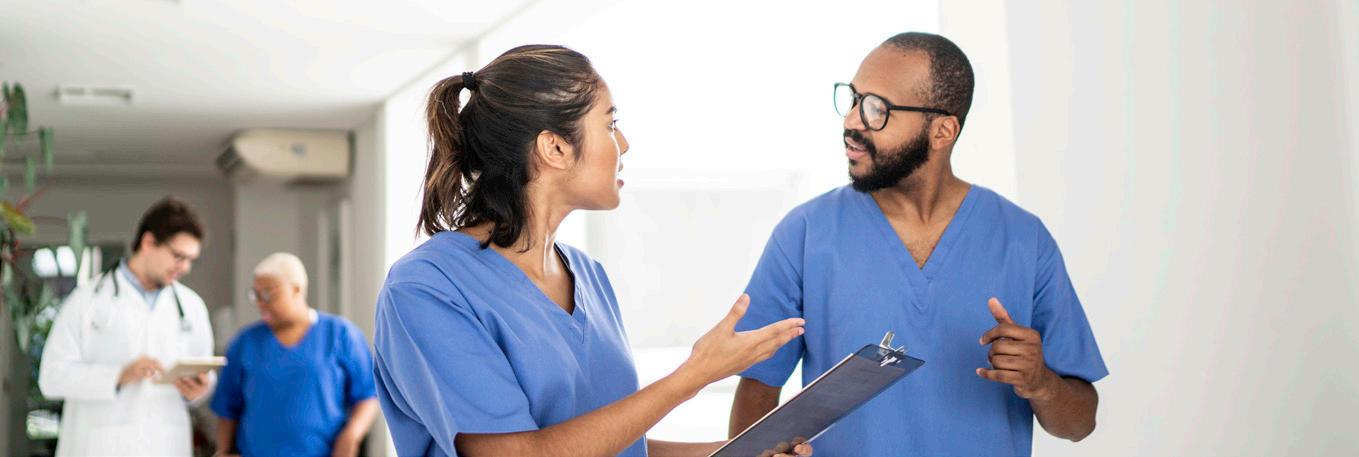
• Preparing IEHPs for their certification exams and integration into their profession’s regulatory college
• Preparing IEHPs with information about entry and integration into the Canadian health care workplace
All bridging programs are offered in the evenings and on weekends, and some programs are offered online. Below are the following bridging programs that we offer:
• Medical Laboratory Science
• Radiological Technology (X-Ray)
• Ultrasound Scanning Evaluation
For more information on application dates, admission requirements and funding, please visit our website at michener.ca/bridging, or contact us at bridging@ michener.ca or 416-596-3101 (ext. 3178 or 3147).
The Michener English Language Assessment (MELA) is a standardized English language proficiency test specific to the health care sector. This test is referenced to the Canadian Language Benchmarks (CLB). MELA scores are used for admission to all Michener full-time, part-time and bridging programs, as a diagnostic tool by program consultants and for regulatory licensing. The MELA test is available for online assessment (LANG101) OR in-person assessment (LANG100) at Michener.
The test takes about three and a half hours, split into four sections:
• Speaking (20 minutes)
• Listening (60 minutes)
• Reading (60 minutes)
• Writing (60 minutes)
For more information on the MELA process and general inquiries, please visit our website at themela.com or email mela@michener.ca.